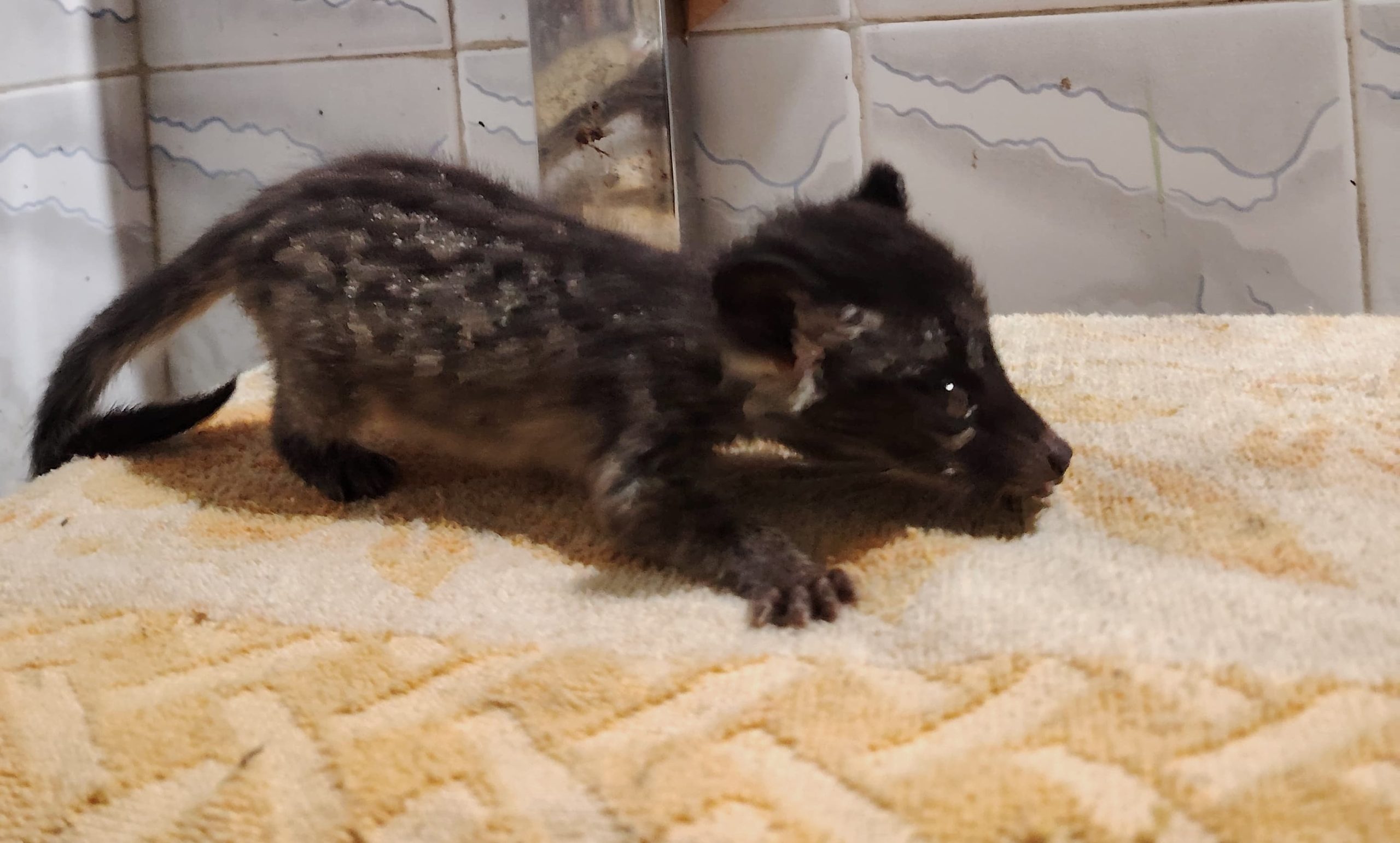45-day-old Asian palm civet undergoes care and treatment at CWRC
Kaziranga, 26th June 2024: On the 10th of June, residents of Jorhat town in the state of Assam found a lone Asian palm civet kitten, crying out for its mother. Unfortunately, the mother was nowhere to be seen. Concerned for its well-being, the residents promptly contacted the Assam Forest Department.
The civet was in imminent danger of dying from starvation without maternal support as the reunion attempt was unsuccessful. To ensure its survival, it was admitted to the Centre for Wildlife Rehabilitation and Conservation (CWRC), operated jointly by the Assam Forest Department, WTI, and IFAW in Kaziranga. The CWRC team examined the 45-day-old male kitten and diagnosed it with malnourishment and gastrointestinal symptoms.
Caring for wildlife orphans in captivity is challenging due to their high stress levels and susceptibility to diseases, given their underdeveloped immune systems. The CWRC team possesses the expertise and facilities necessary for specialised care. We hope that following successful rehabilitation, the civet will eventually return to its natural habitat.

The civet was identified as a male, estimated to be 45 days old | Photo by Dr Neehar Oak
The Asian palm civet (Paradoxurus hermaphroditus) is a nocturnal omnivore that enjoys feeding on fruits and honey, earning its reputation for having a ‘sweet tooth’. This species inhabits a wide range of habitats, including areas around human settlements, and is known to reside in attics, rooftops, and trees near human dwellings.
Due to the rapid expansion and development of urban areas, these animals face significant challenges as they adapt to the changing landscapes of towns and cities. This forced adaptation exposes them to a multitude of urban hazards and threats. As human settlements encroach upon their natural habitats, the interactions between palm civets and humans become increasingly hostile. Furthermore, they are targeted and hunted for their glandular secretions, which are illegally used in the production of musk and perfumes. Despite these challenges, it’s important to note that in urban environments, they play a crucial role as one of the largest mammals responsible for dispersing seeds, contributing to the ecological balance.
The civet kitten under care at CWRC is currently receiving a specialised milk formula followed by belly massages to help aid in digestion. The kitten has started weaning and is being introduced to fruits as part of its diet. Our team has installed a tube-shaped shelter made from a pipe to mimic a nesting burrow, which provides a sense of safety and comfort. Keeping the kitten warm is essential for its well-being. The orphaned kitten has shown significant improvement, and the CWRC team is closely monitoring its progress.
The Centre for Wildlife Rehabilitation and Conservation (CWRC) is a one-of-its-kind facility for the rescue and rehabilitation of injured, displaced and orphan wild animals in Assam, India. Since 2000, sixty-one Asian palm civets have been successfully rehabilitated and released back into the wild.









